“It’s a defense mechanism not knowing how many horses I own,” laughs Carson Kressley. “It helps protect my fragile psyche. I think I have about seven. We have a family farm in Pennsylvania with around 25 horses, but my sister and niece also have horses. Between the three of us we have a lot. And they are all very happy.”
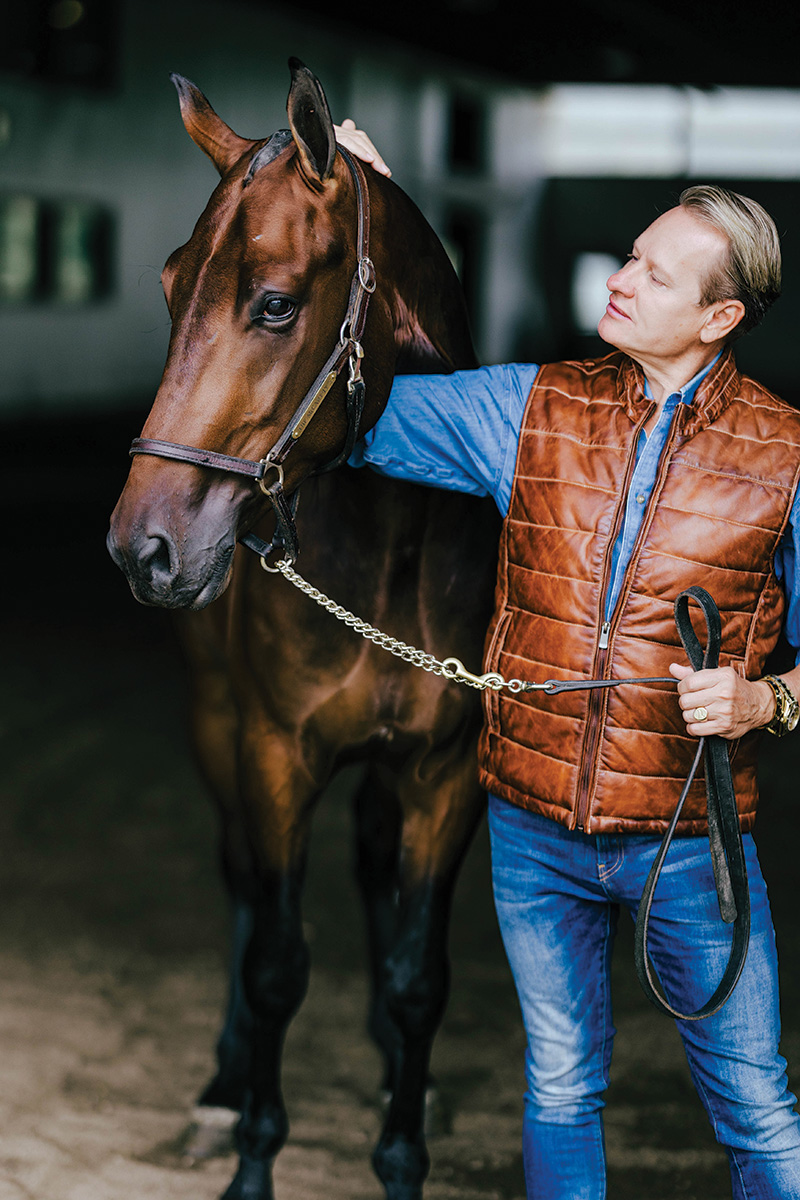
First Horse
“Growing up, we had Shetland and Hackney Ponies, which are very fun,” says Kressley. “But when you’re a teenager, you’re like, ‘Uh no, I don’t want a pony, I need a horse.’”
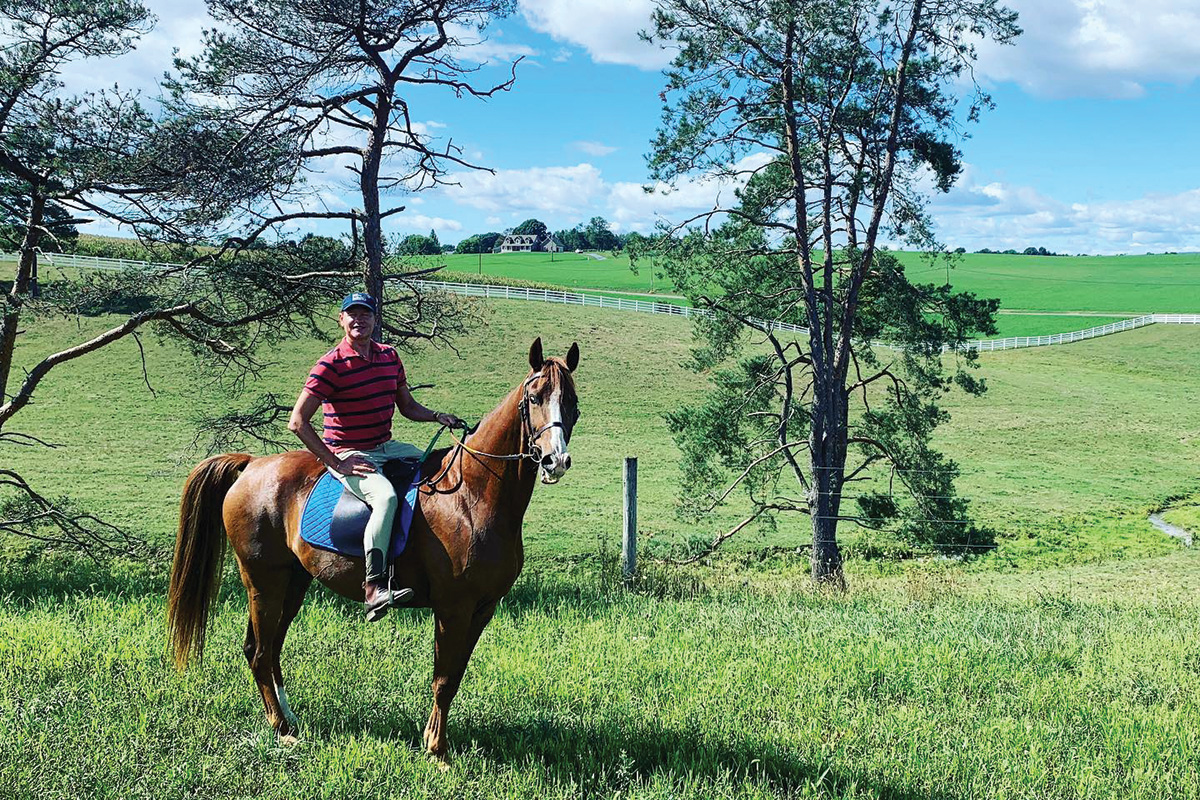
When Kressley was a young child, his grandparents sold their pony farm to a Saddlebred horse trainer and Kressley started taking riding lessons. He fell in love with Saddlebreds and knew one would make a great introductory horse.
“First and foremost, I think American Saddlebreds are the most beautiful horses,” he says. “I’m a real beauty junkie, so I like to have a pretty house, pretty clothes, and pretty horses. Of course, I am biased, but I love their long necks, high-set tails, long legs, and big, beautiful expressive eyes. They are the supermodels of the show ring.
“A high-stepping, high-headed beautiful horse is very compelling,” Kressley continues. “And when you see them in the movies, like the musical Oklahoma, and there are high-stepping strutters pulling the surrey with the fringe on top—I sound like a 100-year-old woman quoting that—but we romanticize and glamorize horses that take that elegant step. I saw that in the movies and growing up and it’s something that I find appealing.”
After saving cash from multiple birthdays and Christmases, Kressley purchased his own horse at age 15. Although the American Saddlebred he bought came with the registered name Daddy’s Money, Kressley purchased it with his own $1,500—which was a fortune to him in 1985.
“I thought he was gorgeous,” he recounts. “But he probably wasn’t the fanciest show horse you could find. I’ve had Saddlebred horses ever since. He was a great first horse. My sister and I would bathe him and take him to shows. He would get loose on our lawn in Pennsylvania while we tried to load him on the trailer. We were the quintessential do-it-yourself horse people.”
Daddy’s Money also came trained, knowing how to take a bow and a bunch of other tricks, which Kressley told everyone that he taught the horse himself. Daddy’s Money’s barn name was Pops, and Kressley says that he continues to give his horses human-sounding barn names like Earl, Larry and Steve.
“People can overhear you on the phone when you say, ‘How’s Steve doing today? Did he get a nice hot bath?’ It’s very intriguing for people.”
Breed of Choice
Kressley says that the American Saddlebred’s personality and trainability, paired with some of the best horse trainers in the world, make this breed a good one for those with limited time to practice.
“You could ride as a little child—8 and under for equitation—on a Saddlebred,” he says. “You can show them in performance as an adult, and when you’re older, you can show them in pleasure and do something really relaxed and comfortable.”
He notes that while American Saddlebreds were historically bred to be glamorous show-ring horses, people are now realizing that they make beautiful western pleasure horses, stylish hunters and gorgeous dressage horses.
“Versatility is something we are really trying to promote in the breed,” Kressley adds. “They are so beautiful, extremely intelligent, and they can learn just about anything.”
Kressley served on the board of the American Saddlebred Museum for 15 years. He has joined up on different committees for the American Saddlebred Horse Association when needed.
“American Saddlebreds are facing challenges like all breeds because there is less space to ride, and people are less connected to horses than ever,” he explains. “But what we have going for us is that they are the very best breed in the world—they are the most trainable, the most beautiful, and have the best disposition. We must use some of these modern technologies like digital platforms to really get the word out, because once you see one, you want to have one.”
A Horse of a Different Color
While Kressley has only been around Saddlebreds his entire life, he is now branching out. He just added Earl, an American Standardbred, to his stable of horses.
“Now that I have different breeds occasionally, I’m like, ‘OK, they have different personalities,’” he says. “I thought all horses were super exquisite and expressive, but some are more laid-back. And that’s OK too.”
Saddlebreds, Hackneys, and roadster horses are usually shown at the same shows because they are trained in a similar way. Since Kressley usually only shows in breed competitions, exposure to other breeds has recently piqued his interest.
At these shows, Standardbreds are driven in roadster classes, where they are shown at three speeds of trot: the jog, road gait, and spectator-favorite full speed.
“The roadster division is really taking off—no pun intended—so I thought I would be part of the fun,” Kressley says of Earl. “My trainer had the former World Grand Champion roadster horse, and he went to the same place [in Ohio] he found that one and said, ‘I found this horse and you should buy him.’”
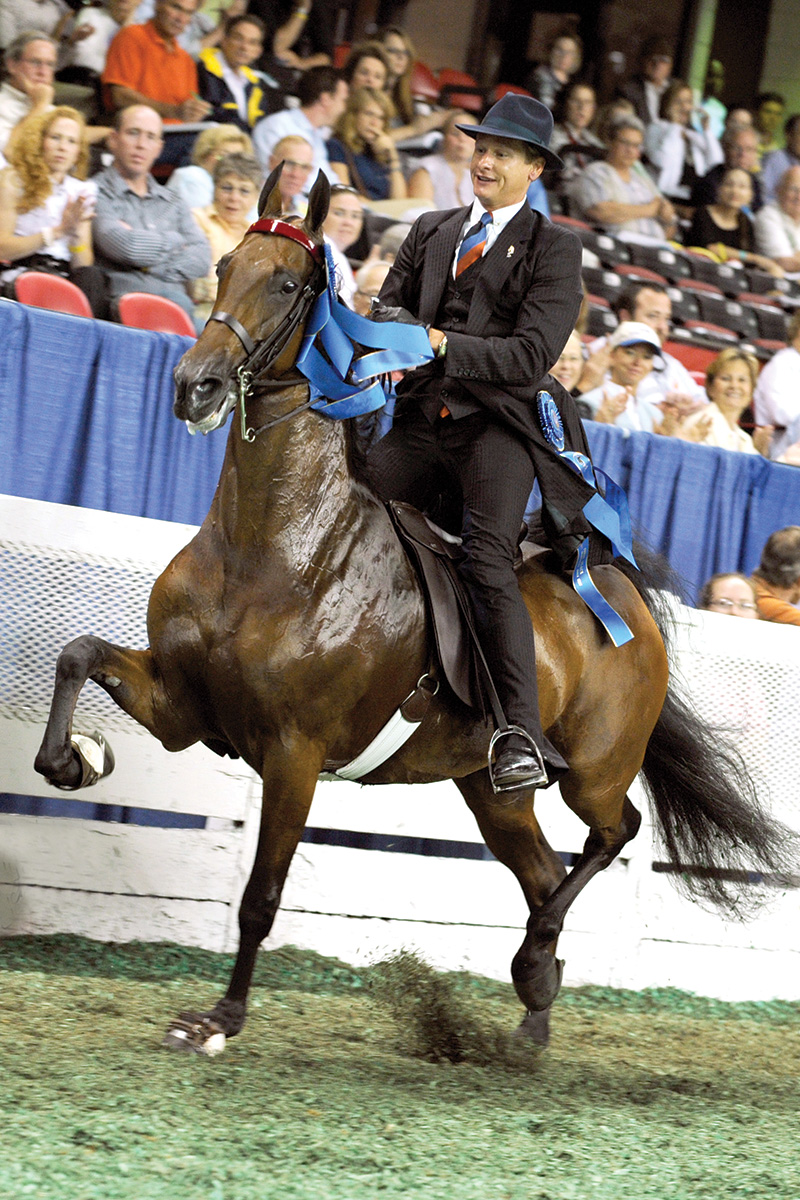
Kressley, who was eating at a Palm Beach hotel, asked to be excused as he watched a video of Earl, and bought him without seeing him in person. Later Kressley thought, “I hope he isn’t catfishing me and shows up with a llama.”
Earl—who was featured on the cover of the March 2023 issue of Horse Illustrated—is 4 years old. Kressley and his trainer took him to the World’s Championship in 2022, which is a little unheard of for a horse that has only been to two shows.
“He placed around fourth out of 23!” Kressley says proudly. “He did really well, and hopefully I’ll get to show him next season. Standardbreds are usually the best for roadster horses, which are like the show-ring version of a trotter racehorse. And we wear silks [like a jockey] and the silk hat, and it’s very fun. It’s fast and exciting. You’re living on the edge a little bit, because they are big and powerful.”
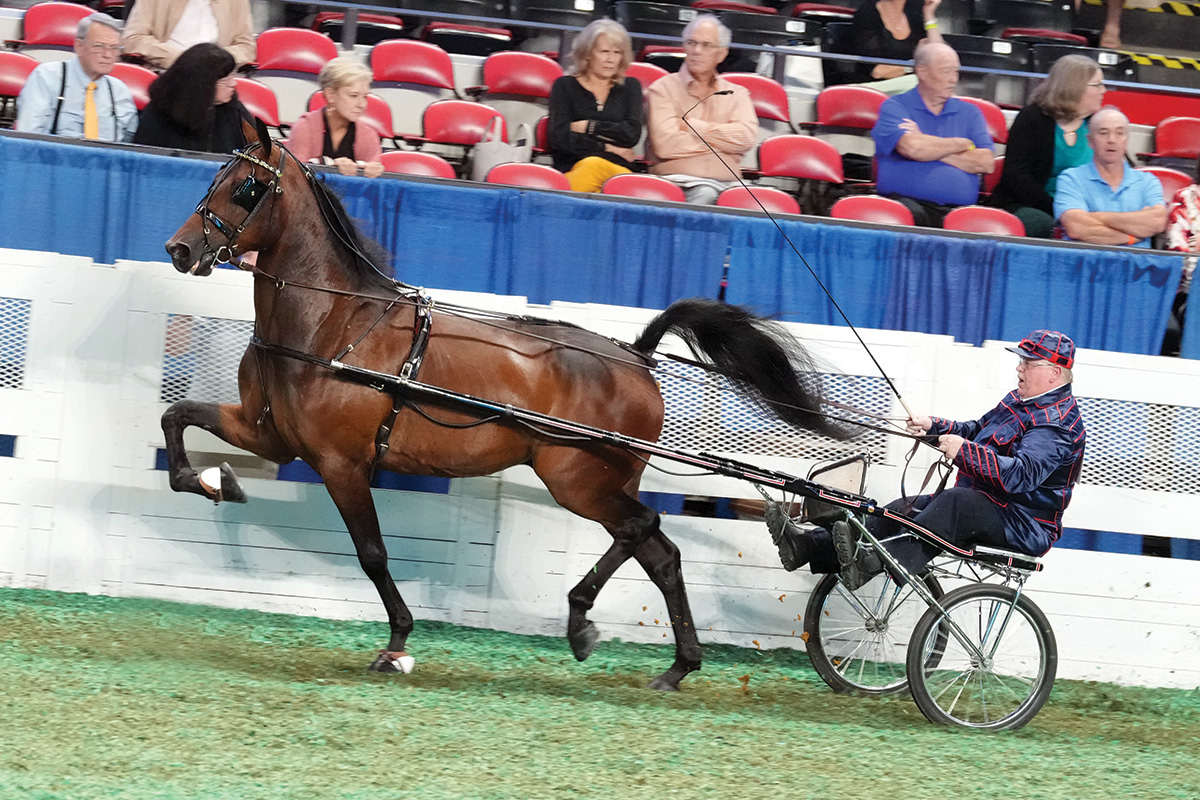
If a Standardbred doesn’t win in their career on the racetrack, they can become a great show horse. Recently, breeders of Standardbreds in the Midwest include families that are only breeding for show horses. These horses may be a little prettier than racing-bred Standardbreds.
“The benefit is that they are trained specially for that job, although rehoming them from the track is fantastic,” Kressley says.
Growing up Fabulous
“I guess I have a very large personality,” Kressley says gleefully. “My dad was a car dealer and salesperson, so I think I got a little bit of that showmanship from him. Even as a kid, if I won, I would take my hat off and ride one-handed. I saw a famous horseman doing that and I thought, I am going to be fabulous and do that.”
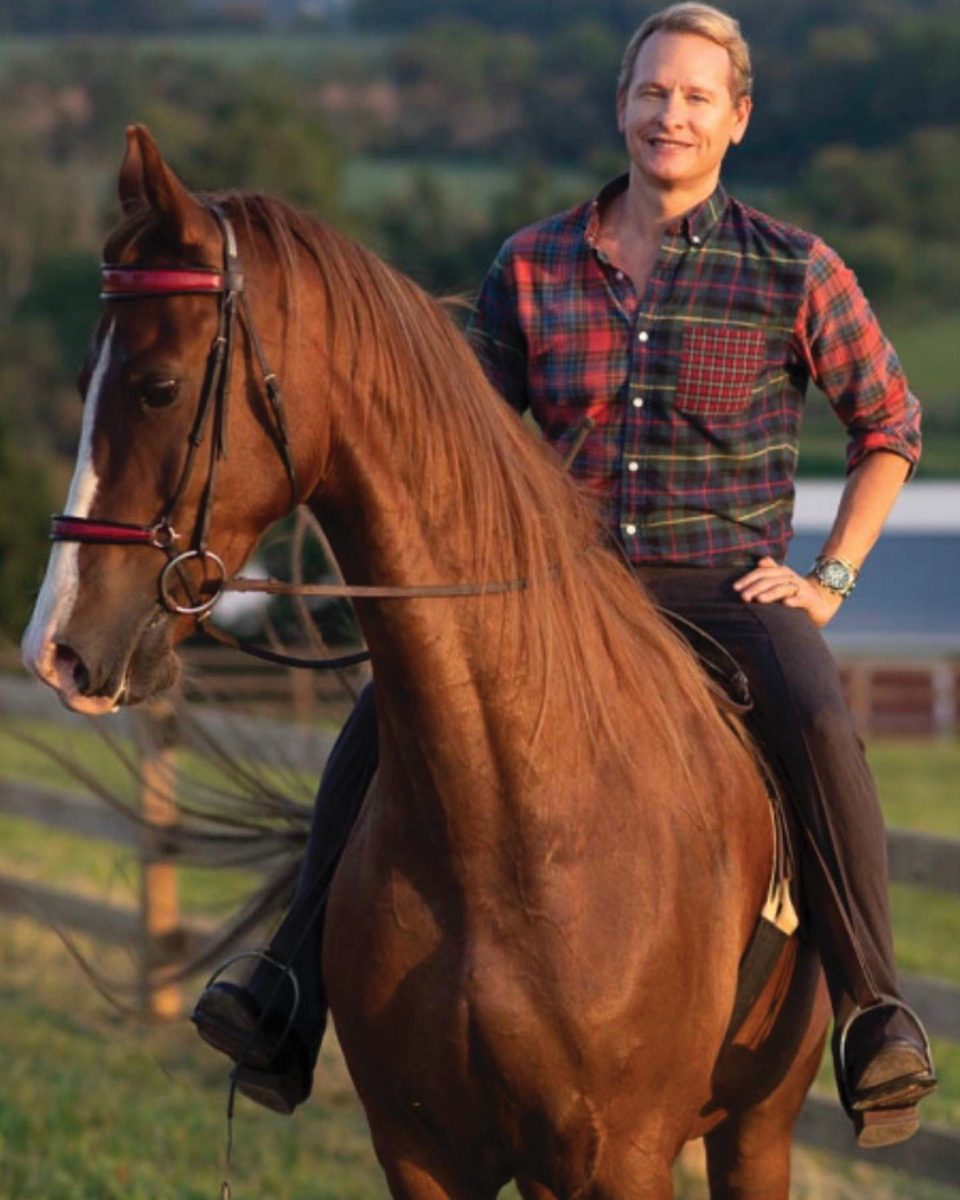
Growing up gay in what can be considered a very conservative farm town in Pennsylvania, Kressley says that junior high was not the greatest time for him. To combat the bullying, he developed a sense of humor and quick wit.
“If I could disarm people through laughter, then they couldn’t be making fun of me,” Kressley says. “I’ve heard that from a lot of funny people and comics, and that defense mechanism became a huge blessing. It has helped me get a fabulous career in television, so I say, ‘Bring it on, bullies! It didn’t work.’”
While junior high may not have been the best, Kressley says the horse business has always served as a second home.
“It was a place that I felt I could always be who I am,” he says. “Whether it be with horses at home, the farm, or horse show, that was my happy place and a place that I escaped to. There were a lot of queer role models. A lot of gay people are involved in the industry, so I felt safe, and it was a very positive experience.”
In the past few years, both the American Saddlebred Association and United States Equestrian Federation have had LGBTQ pride initiatives.
“It was really gratifying seeing my second family take that extra step of not just being tolerant, but celebrating our LGBTQ participants,” says Kressley.
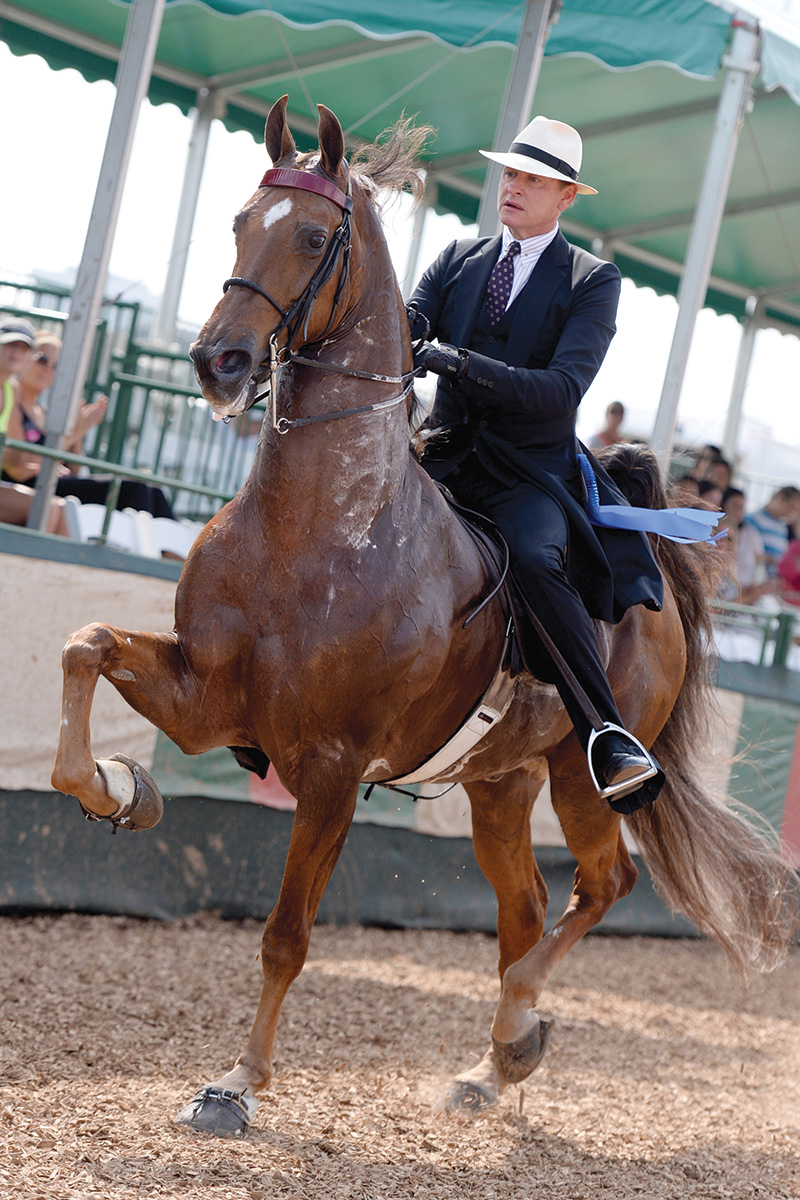
He continually refers to the horse world using words like camaraderie and friendship.“When you have been doing this for 40 years, you can take it one step further and say family,” says Kressley. “My friends have kids who show with my niece. Everybody knows each other’s family, and it’s a very supportive environment.”
Lifelong Learner
“I love all different types of horsemanship,” he says. “Back in the day, if you were a sportsman, you played polo and you had to know hunters and how to ride saddle horses. So I like the idea of being able to do all of those things.”
When Kressley is in Los Angeles for work, he uses his days off to ride. Partnering up with top-level hunter/jumper trainer Archie Cox, Kressley recently started learning how to jump.
“Archie said, ‘I know you like a salty mare,’ so he put me on this little chestnut mare,” he says. “I didn’t know she was a Grand Prix horse and jumps over 6-foot things! I was like the Three Stooges getting on a horse and not knowing how to ride. I looked like a 1920s person going over jumps. I was way behind the saddle with my arms stretched out. I looked like a Currier and Ives engraving.”
Kressley’s niece does western riding, barrel racing, and rodeo. She has some Quarter Horses that Kressley says he wouldn’t mind learning some reining or cutting on.
“Just being around nice horses is always good,” he adds.
He’s also looking for a five-gaited Saddlebred to add to his string.
“They are true unicorns,” says Kressley. “They are very hard to find, and I think they are the most fun thing in the world because you get to go fast but you still are elegant, and you get to wear great clothes. So I am on the hunt for that!”
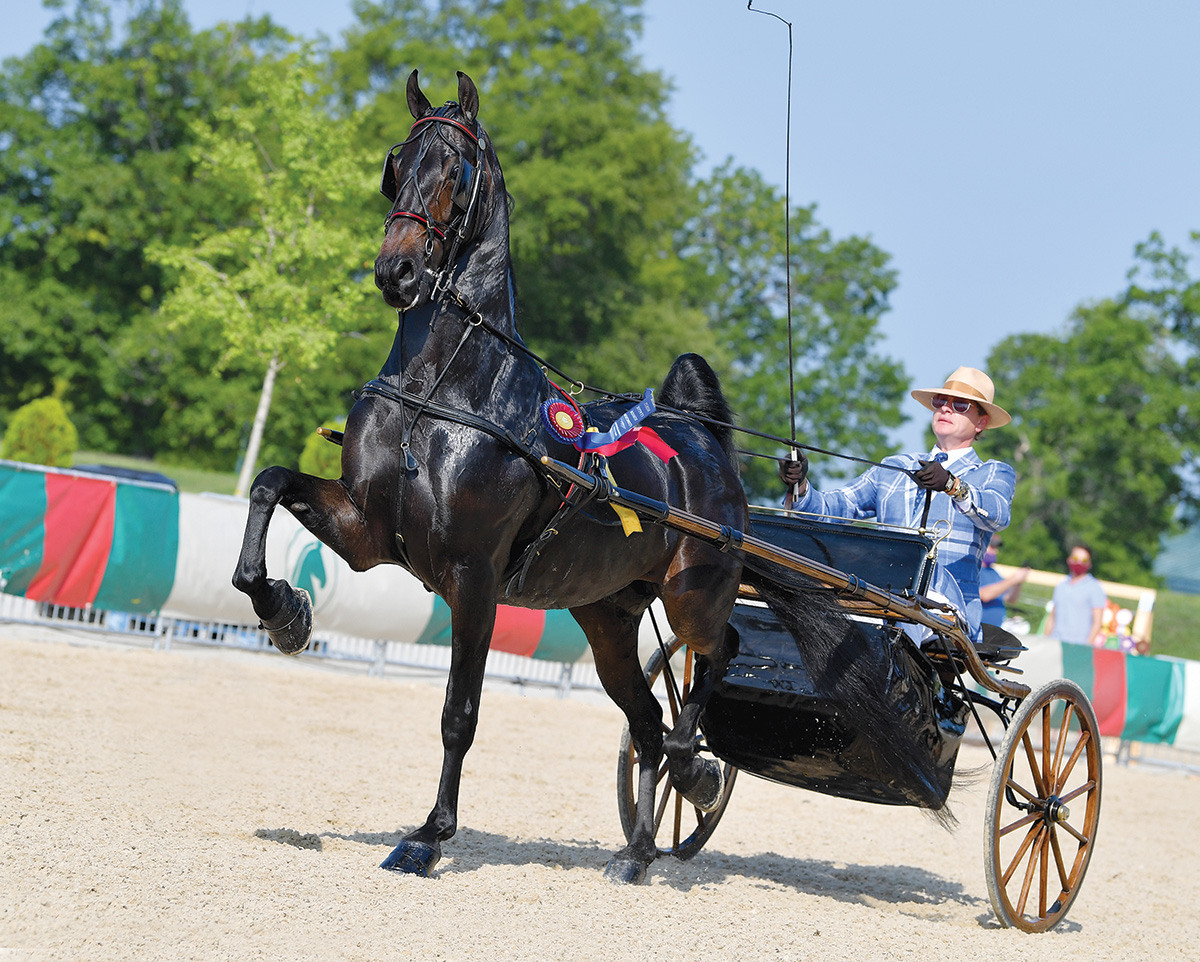
While many people grow out of their childhood hobbies, Kressley certainly has embraced his love of horses well into adulthood, even while his interests varied.
“I grew up with horses and ponies ever since I was born,” he says. “I didn’t know when you go to college and get your first job you have to sell the horse. I always had great parents who paid to keep the training going. I remember being in my 20s in New York City, working at Ralph Lauren, going to parties most nights, traveling the world, and being a social butterfly, but I still managed to go to all the horse shows and never missed a World Championship. It’s just part of my life—like breathing and going home for Christmas—and owning a horse.”
Follow Carson Kressley on Instagram @carsonkressley.
This article about Carson Kressley appeared in the March 2023 issue of Horse Illustrated magazine. Click here to subscribe!





